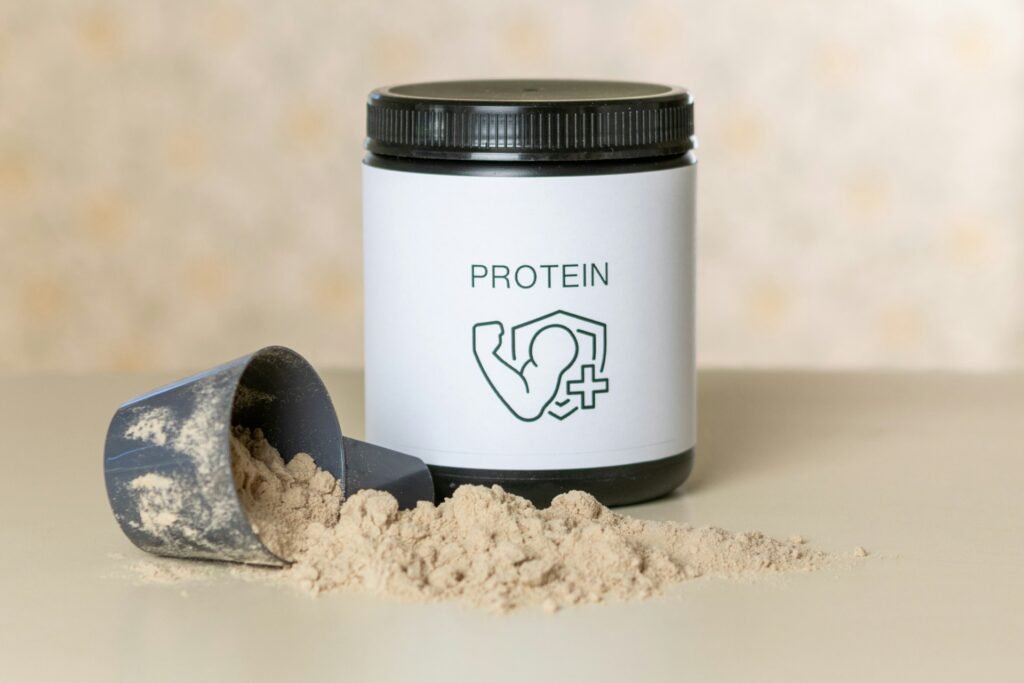Protein powder is a dietary supplement designed to provide a concentrated source of protein to support muscle repair, growth, and overall health. It is typically derived from sources such as whey, casein, soy, pea, or rice. According to research published by the Department of Nutritional Sciences at Rutgers University in 2020, protein powders are highly effective in increasing protein intake for individuals engaged in regular physical activity or those with dietary deficiencies.
Types of Protein Powder
Protein powders are categorized into three main types:
1. Whey Protein:
Derived from milk, whey protein is a fast-digesting protein rich in essential amino acids, making it ideal for post-workout recovery.
2. Casein Protein:
Also from milk, casein protein digests slowly and is often consumed before bedtime to support overnight muscle repair.
3. Plant-Based Protein:
Made from soy, pea, hemp, or rice, these are suitable for vegans and individuals with dairy allergies. Plant-based powders often contain high levels of fiber and fewer saturated fats.
Benefits of Protein Powder
Protein powder supports dietary protein intake and offers numerous health benefits:
• Muscle Growth and Recovery:
A study by the International Society of Sports Nutrition in 2018 concluded that whey protein can enhance muscle mass and strength when combined with resistance training.
• Cardiovascular Health:
Plant-based protein powders have been shown to improve heart health due to their low saturated fat content and fiber-rich composition.
• Clinical Applications:
Protein powder benefits extend to patients recovering from surgeries or those with sarcopenia. Research from the Mayo Clinic’s Nutrition Division in 2021 demonstrated that protein supplementation improves muscle mass retention by 15% in elderly individuals when combined with light exercise.
How to Use Protein Powder Safely
While protein powder offers many advantages, it is essential to use it in moderation:
• Daily Recommendations:
The average adult requires 0.8 grams of protein per kilogram of body weight, which may increase with intense physical activity.
• Potential Risks:
Excessive intake can strain the kidneys or lead to imbalanced macronutrient consumption.
• Consultation:
The FDA advises consulting a healthcare provider before incorporating protein supplements, particularly for individuals with kidney conditions or other health concerns.
Conclusion
Protein powder is a versatile and effective supplement for improving protein intake, supporting muscle growth, and maintaining overall health. Its applications range from athletic performance enhancement to clinical nutrition, with significant scientific backing from studies in the fields of sports medicine and nutrition. Whether choosing whey, casein, or plant-based options, protein powders are a convenient tool to meet individual dietary needs.

